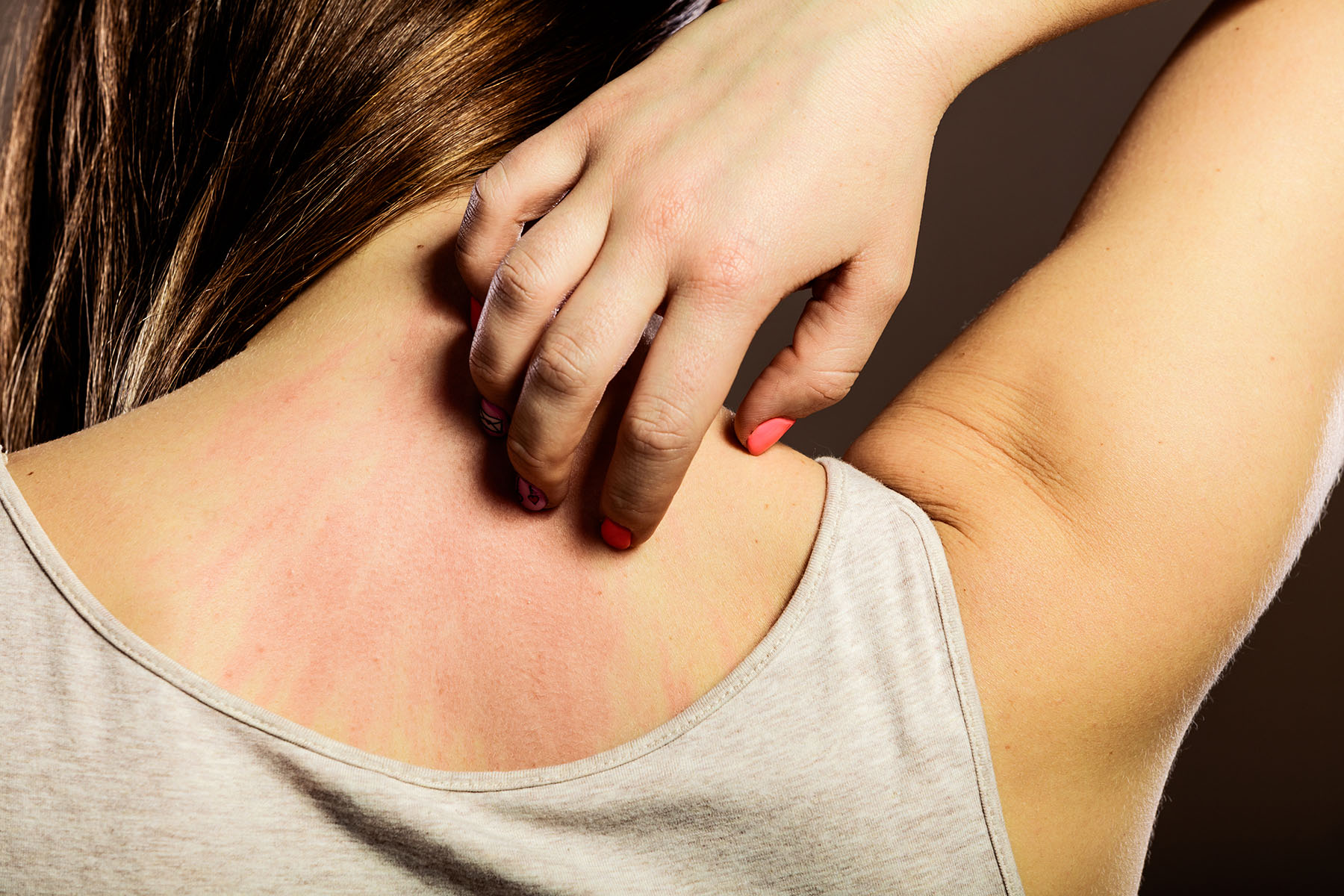An Itch, in Time, Can Be a Sign of Many Things

A lingering itch that won’t go away could be trying to tell you something.
What could be worse than an itch you can’t scratch? How about an itch that doesn’t go away even when you do?
Sorry to tell you, but – scratch, scratch, scratch – one out of every eight of us will find out at some point in our life.
And, while that itch – scratch, scratch, scratch – may just seem like an irritation, sometimes – scratch, scratch, scratch – it’s a sign of something worse.
Which itch is which?
Chronic itch, says Dr. Gil Yosipovitch, a UHealth dermatologist and director of the Miami Itch Center, is defined as itch that last more than six weeks.
That kind of persistent itch can mean everything from you’re pregnant to you’re getting old. But it can also be related to liver disease. Or lymphoma. Then again, it could be an allergy.
“It’s important to differentiate itch with rash versus itch without rash,” he says.
One with a rash could be from a simple insect bite, an allergic reaction, or good old athlete’s foot. Or it could be one of the chronic skin diseases like eczema or psoriasis. It could be connected to scabies, chickenpox or hives (and, yes, there’s chronic version of hives, as well.)
“Then there are conditions without a primary rash. That can be related to internal diseases,” he says. Among the common ones: end-stage kidney disease, chronic liver disease, and lymphoma.
Or it could be neuropathic, caused by damage to the nerves transmitting the itch. That includes things like multiple sclerosis, diabetes, pinched nerves, and shingles.
Stress and depression can bring on itching, too.
“Like chronic pain, they have chronic itch.”
“There’s also, unfortunately, another category of itch that can happen the older we get,” Yosipovitch says. “It’s a very common complaint. A lot of times we see old-aged people who have itch on the scalp or other body sites and we don’t have any rash. It can drive them crazy.”
Dry skin, too, can be too blame, which also is often associated with old age.
While the itch itself can be frustrating and annoying, our reaction to it can be worse.
“Itch cannot be divorced from scratching,” Yosipovitch says. “When you itch you feel like scratching. So by scratching your skin you damage it.”
Antihistamines, hydrocortisone cream, and calamine lotion can be good for insect bites and allergic reactions. Sadly, though, they don’t work for chronic itch, Yosipovitch says. “Except for making you a bit drowsy and maybe helping you sleep better, but doesn’t really resolve the underlying itch.”
But a more permanent solution may not be far off. Yosipovitch is part of a UHealth team that has finally cracked the genetic code behind the frustrating itch of eczema and psoriasis. That gives them new targets for treatment.
As Ogden Nash said: “Happiness is having a scratch for every itch.”
Better still may be not having an itch at all.
Carlos Harrison is a contributor for UHealth’s news service.
Tags: chronic itch, dermatology, Dr. Gil Yosipovitch, Miami Itch Center, tips for itching
